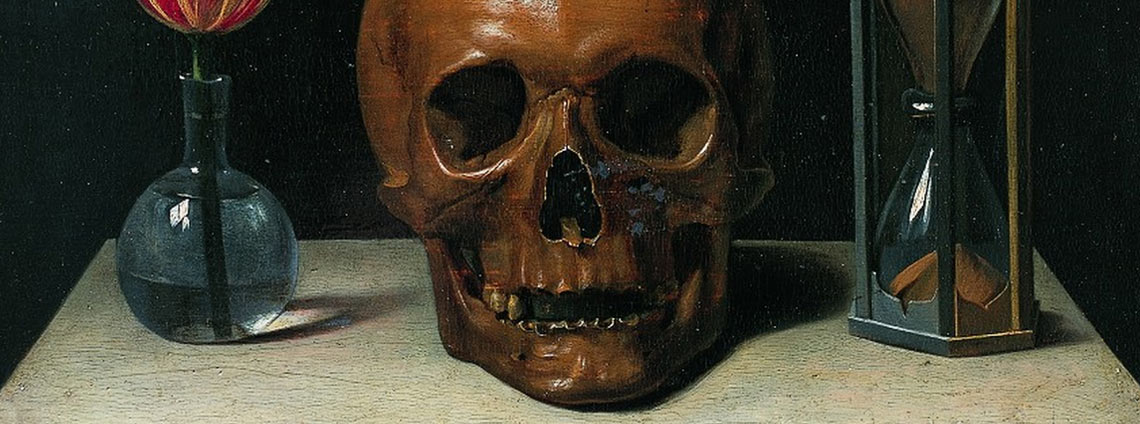Roy Barnett Recital Hall | Map
Les Voix Baroques; Jacqueline Woodley, soprano; Krisztina Szabó, mezzo-soprano; Sylvia Szadovszki, mezzo-soprano; Colin Balzer, tenor; Jacques-Olivier Chartier, tenor; Sumner Thompson, baritone; Hank Knox, guest music director
“A sellout crowd knew that this very particular evening of music was as special as it was spectacular.” – David Gordon Duke, The Vancouver Sun, August 16, 2012
“Farewell laughter, farewell singing, farewell delights of the world!” wrote Luigi Rossi. In the 17th century, Roman composers were surrounded by the remains of one of the greatest civilizations the world has ever known, so it’s no surprise that their texts explore the passing of Time and the ephemeral nature of physical beauty and pleasure. These rich and intense musical settings are passionate, dramatic arguments for the value of enjoying life’s fleeting pleasures. Music by Carissimi, Rossi, Marazzoli, and more.
Mahony and Sons is proud to sponsor Early Music Vancouver. Join us before or after your concert and make your experience a great one. For reservations visit mahonyandsons.com. We validate parking at our UBC location.
Programme
Vanitas Vanitatum, Giacomo Carissimi (1605-1674)
Toccatta Setima, Libro primo d’intavolatura di lauto (1611), Giovanni Girolamo Kapsberger (1580-1651)
Sospirate bellezze, Luigi Rossi (1597-1653)
Ricercar Terzo (1614), Girolamo Frescobaldi (1583-1643)
Elena Invecchiata, Marco Marazzoli (1605-1662)
Intermission
Ergi La Mente Al Sole, Luigi Rossi
Da Tutti Gli Horologi Si Cava Moralita, Domenico Mazzocchi (1592-1665)
Sonata sopra Fuggi dolente core, Biago Marini (1594-1663)
Si Quis Daret Concentum, Luigi Rossi
Passacaille, Biago Marini
Passacalli Della Vita, Anon (arranged by Sean Dagher)
Programme notes
In Egypt’s sandy silence, all alone, Stands a gigantic Leg, which far off throws The only shadow that the Desert knows:— ”I am great OZYMANDIAS,” saith the stone, ”The King of Kings; this mighty City shows ”The wonders of my hand.”— The City’s gone,— Nought but the Leg remaining to disclose The site of this forgotten Babylon….
Horace Smith, Ozymandias (1818)
Qu’une chose aussi visible qu’est la vanité du monde soit si peu connue, que ce soit une chose étrange et surprenante de dire que c’est une sottise de chercher les grandeurs. Cela est admirable.
Vanity.—How wonderful it is that a thing so evident as the vanity of the world is so little known, that it is a strange and surprising thing to say that it is foolish to seek greatness!
Blaise Pascal (1623-1662), Pensées (1669)
Living in Rome in the first half of the seventeenth century in a time of political, religious and scientific turmoil, where images of war and disease played on a background of great splendour amid the ruins of Antiquity, it is not surprising that seventeenth-century moralists, philosophers and artists would meditate on the transience and fragility of human life and glory. The music heard this evening reflects those sober, and sobering, meditations. And yet, despite the potentially dark subject matter, this music draws on the full palette of 17th-century musical styles and techniques to move the listener with music of great beauty and power.
In this context, there is a fine irony in the fate of the music from the hand of Giacomo Carissimi. This Roman musician was among the most influential composers working in the first half of the seventeenth century. Shortly before he turned 25, he became maestro di cappella at the Collegio Germanico e Hungarico in Rome and remained in the post until his death. The Collegio Germanico, a Jesuit seminary that trained young men from German-speaking countries for the priesthood, already had a long tradition of musical excellence, going back at least to the time of Victoria in the late 16th century. Over the course of his career, he produced an impressive body of work in a variety of styles; his motets, cantatas and oratorios in Latin were among the defining examples of these new genres. He attracted students from across Europe, many of whom went on to significant careers, including Marc-Antoine Charpentier, Johann Caspar Kerll, and Christoph Bernhard and he was lauded as one of the most celebrated musicians of his day. Following his death, his scores were jealously guarded by the Collegio; a 1674 papal brief forbade anyone from removing Carissimi’s compositions from the college under pain of excommunication. And yet today the autograph scores are no longer at the Collegio. Many were sold as scrap paper when the Society of Jesus was suppressed in 1773, others were pillaged during the Napoleonic invasion. More copies of his music survive outside of Italy than within. The oratorio Vanitas Vanitatum, is a series of meditations, inspired in part by the Book of Ecclesiastes, on the vanity of pleasures and human works such as science, philosophy, power, and even music. Even so, the “Vanitas” refrain is a remarkably ‘catchy’ hook, designed to help the lesson remain with the listener long after the final chord.
Marco Marazzoli was another Roman musician whose fame was celebrated across Europe. Singer, harpist and composer, Marazzoli served various members of the influential Barberini family in a variety of venues for much of his career. Under their patronage, he spent several years in Paris where, among other activities, he composed chamber cantatas for the court of Anne of Austria who is said to have been moved to tears by his work. Elena Invecchiata is a remarkably personal meditation by Helen of Troy as she looks back with surprise and some bitterness on the years of war waged over her beauty, now ravaged by the implacable hand of time.
Yet another celebrated Roman composer connected to personalities associated with the papacy is Luigi Rossi. He was active in Naples, Rome and Paris. At about the time Carissimi began his work in the German college, Rossi was selected as organist at the French national church, S Luigi dei Francesi and later became part of the entourage of Cardinal Antonio Barberini. When the Barbarinis were forced to flee Rome in 1646, he followed them to France where his music was greatly appreciated by, among others, Cardinal Mazarin. His canzonettas and cantatas were widely popular, and he wrote operas for both the papal family and the French royal court. Sospirate Belleze is an apt introduction to the lament of Helen of Troy: it warns those beauties over whom we sigh that time will inevitably take its revenge. The extended cantata, Ergi la mente al sole, combines elements of all of the genres in which he excelled: the solo-voice cantata, the madrigal and the vocal trio. It is paean to the power and light of the sun, whose first light in the morning calls forth worship from the songs of birds and the rustling of the wind… And yet, even the powerful Sun tells us how he is but a pale reflection of the eternal light of God: even the most mighty must yield to the Divine. It is perhaps the only way to overcome the melancholy brought on by contemplation of our own vanity. The exquisite Latin trio, Si Quis Daret Concentum, repeats the moral: there is nothing in the delights of the world to compete with the sweet song of angels or the musical consorts of heaven, and so farewell to the delights of the world. The musical setting, including both ravishing close harmony from the three vocalists and lush, sensuous writing for the instrumental consort, are intended to invite the listener into the sound world of the eternal.
The final, anonymous work on the programme will send us out dancing into the dark night. This modest canzonette spirituale repeats its refrain (‘Bisogna morire’, You must die) repeatedly between verses steeped in the vanity of life and the cruel progress of time. Repeatedly but infectiously: the somber text unfolds over a lilting and catchy Passacaglia bass line, like so much music heard for centuries set to texts covering the entire gamut of human experience: love, faith, betrayal, celebration…. and even death. Life may be short, but that shouldn’t stop us from living it to the fullest!
Les Voix Baroques
Founded in 1999, Les Voix Baroques is an ensemble of vocalists produced by Matthew White that works in conjunction with prominent period instrumentalists, ensembles and guest directors to present works from the Renaissance and Baroque.
Past collaborations include Bach's St. John Passion and St. Matthew Passion with Tafelmusik Baroque Orchestra, the St. John Passion with the Portland Baroque Orchestra/Monica Huggett, Bach Cantatas with Ensemble Les Boreades and a 2007 Juno-nominated and Opus Award-winning ATMA recording of Buxtehude's Membra Jesu Nostri with Les Voix Humaines and conductor Alexander Weimann. They have appeared in concert for the Vancouver Early Music Festival, the Boston Early Music Festival, Houston's Mercury Baroque Orchestra, the Montreal Baroque Festival, the Ottawa Chamber Music Festival, the Sackville Early Music Festival, Domaine Forget, the Elora Festival, and in two Opus Award-winning concerts produced by CBC for the McGill Concert Series. Their 2012 Juno-nominated recording of Bach's St. John Passion with Montreal's Ensemble Arion is the latest recording in their longtime collaboration with Atma Classique.
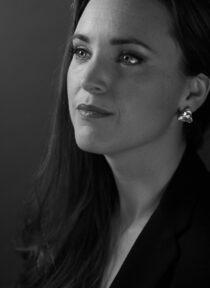
Jacqueline Woodley, soprano
Canadian soprano Jacqueline Woodley has been praised for her fearless versatility, changing styles fluidly from early music to contemporary, from opera to art song.
Recent performances include her Montreal Symphony Orchestra debut under Kent Nagano; the role of Adele (Die Fledermaus) with Edmonton Opera; appearances at the Vancouver Early Music Festival and the Ottawa International Music Festival with Les Voix Baroques; a soprano and trumpet programme for Clavecin en Concert and La Fête de la Musique de Mont-Tremblant; and Handel’s Messiah both for the National Arts Centre Orchestra and in a staged version for Against the Grain Theatre.
Sought after for her “exceptional talent” in performing modern works, Jacqueline created the role of Milice-Bride in the première of Ana Sokolovic’s opera Svaba-Wedding with Queen of Puddings Music Theatre, as well as the American première with Philadelphia Opera and subsequent Canadian and European tours. Other well-received performances of contemporary music include works by György Kurtág, Kaija Saariaho and Judith Weir.
A recent alumna of the Canadian Opera Company Studio Ensemble (2010-2012), she performed and covered several main stage roles, among which Olympia (Contes d’Hoffmann), Amore (Orfeo ed Euridice), First Priestess (Iphigénie en Tauride), Page (Rigoletto), Lace Seller (Death in Venice), and was heard in the Studio Ensemble productions as Iris in Semele and the “deliciously sexy” Papagena in Die Zauberflöte.
Possessing a strong affinity for concert works, Jacqueline has sung Bach’s Saint John Passion, Orff’s Carmina Burana, Fauré and Mozart’s Requiem, Mahler’s Eighth Symphony, Mercure’s Cantate pour une joie, Haydn’s The Creation, Pärt’s Stabat Mater, and Vaughan Williams’ Dona Nobis Pacem.
Jacqueline holds a master’s in opera from McGill University, and upcoming performances include Messiah with Aradia Ensemble and Papagena with Edmonton Opera.

Krisztina Szabó, mezzo-soprano
Hungarian-Canadian mezzo-soprano Krisztina Szabó is highly sought after in North America and Europe as an artist of supreme musicianship and stagecraft. She is known for her promotion and performance of contemporary Canadian works. Among her many laudatory reviews, Opera Canada declared her to be an “exceptional talent” after her performance of the title role of Dido in Purcell’s Dido and Aeneas. After a performance with Tapestry Opera, the music blog, Schmopera wrote that “her instrument is one-of-a-kind and she has cemented herself as a darling of Canadian experimental music and opera…her sensibility and sensitivity to the material is truly inspiring”. In her hometown of Toronto, she has been nominated twice for a Dora Award for Outstanding Female Performance. Krisztina has recently been appointed Assistant Professor of Voice and Opera at the University of British Columbia School of Music.

Sylvia Szadovszki, mezzo-soprano
Mezzo-soprano Sylvia Szadovszki studied at the Manhattan School of Music (B.Mus.‘06) and the University of British Columbia (M.Mus.’09/DMPS.’11). Most recently, Sylvia sang the role of Nancy in Albert Herring with Vancouver Opera. She was a member of the Yulanda M. Faris Young Artist Program at Vancouver Opera during their 2012/2013 season, singing the roles of Papagena in The Magic Flute and Kate in The Pirates of Penzance.
Sylvia made her German debut as Rosina in Theater Hof’s new production of Der Barbier von Sevilla in 2012. She also joined Pacific Opera Victoria’s Resident Artist Program that year, singing Mercedes in Carmen. Sylvia sang the role of Hansel in the Vancouver Opera In Schools 2011 fall tour of Hansel and Gretel. She was selected as a Northwest Region Finalist in the Metropolitan Opera National Council Auditions in both 2011 and 2012. Sylvia has performed as a soloist with the Vancouver Symphony Orchestra, the Victoria Symphony, the West Coast Symphony, the Vancouver Metropolitan Orchestra, the Vancouver Academy Orchestra and the Northern Czech Philharmonic. Sylvia will make her debut with Edmonton Opera this fall, singing Rosina in Il Barbiere di Siviglia.
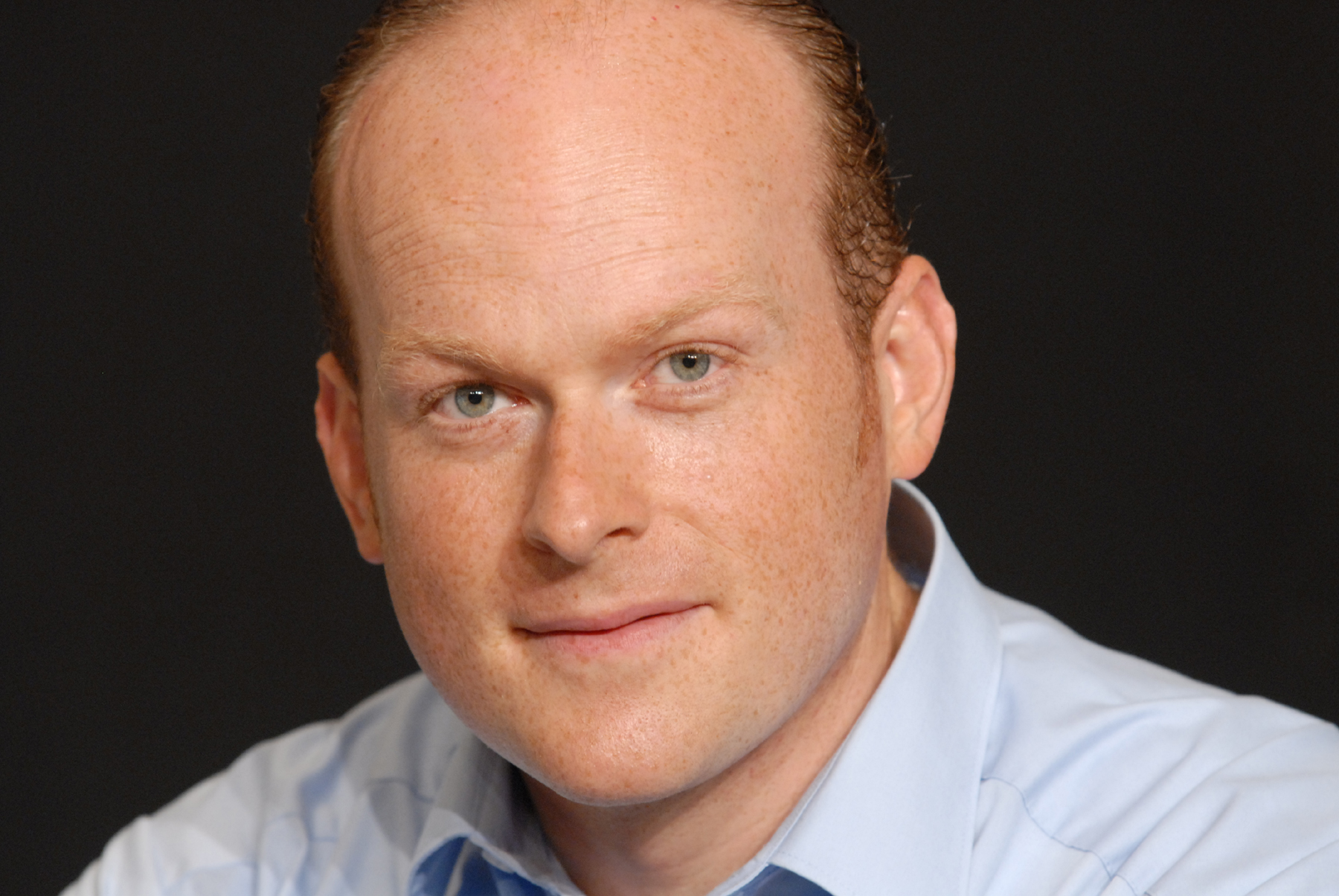
Colin Balzer, tenor
Canadian lyric tenor Colin Balzer’s North American engagements include recitals at New York’s Frick Collection and on the Philadelphia Chamber Music series; concerts with the Portland, New Jersey, Utah, Victoria, Ann Arbor, Québec, Atlanta, and Indianapolis Symphonies; Early Music Vancouver; Tafelmusik and the Toronto Mendelssohn Choir; Les Violons du Roy; the National and Calgary Philharmonics; Ottawa’s National Arts Centre Orchestra; Musica Sacra and the Oratorio Society of New York at New York’s Carnegie Hall. In addition, he is regularly featured in opera productions at the Boston Early Music Festival.
Guest soloist appearances abroad include work with Collegium Vocale Gent led by Philippe Herreweghe, Fundacao OSESP Orchestra and Louis Langrée, Les Musiciens du Louvre under Marc Minkowski, Rotterdam Philharmonic led by Yannick Nézet-Séguin, Akademie für alte Musik under Marcus Creed, and the RIAS Kammerchor, Scottish Chamber Orchestra, Radio Kamer Filharmonie, Estonian Chamber Choir, and Musik Podium Stuttgart. Operatic forays include the role of Don Ottavio in Mozart’s Don Giovanni at the Bolshoi and in Aix-en-Provence and Mozart’s La finta giardiniera in Aix and Luxembourg.
Particularly esteemed as a recitalist, he has been welcomed at London’s Wigmore Hall, the Britten Festival in Aldeburgh, the Vancouver Chamber Music Festival, the Wratislavia Cantans in Poland, and at the Festspielhaus in Baden-Baden. Recordings to date include Wolf’s Italienisches Liederbuch and Eisler and Henze song anthologies. Mr. Balzer holds the rare distinction of earning the Gold Medal at the Robert Schumann Competition in Zwickau with the highest score in 25 years. Born in British Columbia, he received his formal musical training at the University of British Columbia with David Meek and with Edith Wiens at the Hochschule für Musik Nürnberg, Augsburg.
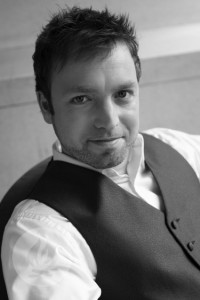
Jacques-Olivier Chartier, tenor
As a Winner of Tafelmusik Baroque Orchestra’s Competition in 2016, Jacques-Olivier debuted recently with this ensemble under conductor Ivars Taurins.
Highlights of his past seasons include Purcell’s King Arthur and B minor Mass with the American Bach Soloists in San Francisco, Beethoven’s C major Mass with Ottawa Choral Society as well as Bach’s St Matthew Passion (arias) with Ottawa Thirteen Strings Orchestra, the B minor Mass with Bishop’s Choir (St-Benoit du Lac), the role of the Evangelist in Bach’s St Matthew Passion at Maison Symphonique de Montréal under Louis Lavigueur, Handel’s Messiah under Jacques Lacombe and the Orchestre Symphonique de Trois-Rivières and a special French Music program from the Napoleonic period under conductor Mathieu Lussier.
This season, Jacques is invited by the Orchestre symphonique de Laval for Bach Cantatas under Alain Trudel as well as the Orchestre Sinfonia for Haydn’s Lord Nelson Mass under Louis Lavigueur. He is also pleased to join I Musici Orchestra and Jean-Marie Zeitouni for some Antonio Vivadi’s Psalms. He will also take part of the Lamèque Internationnal Baroque Festival, New Brunswick for Telemann’s Motets. Jacques is also invited by the Ottawa Bach Choir under Dr. Lisette Canton. He will finish his season with a major Canadian and Belgium tour of a staged version of Schubert’s Winterreise. This project include the captivating dancer José Navas and the precious collaboration of Francis Perron, pianist.
As a ”Bach tenor” Jacques sings both Passions and Cantatas under conductors such as Yannick Nézet Seguin (Evangelist), Jean-Marie Zeitouni (Evangelist), Louis Lavigueur (Evangelist), Monica Huggett (Arias), Patrick Wedd (Arias), Alain Trudel (Evangelist), Paul Halley (Arias) and Kevin Mallon (Arias) and Bernard Labadie.
Jacques-Olivier has been guest soloist for Festivals such as the Montreal Bach Festival, Montréal Baroque, Early Music Vancouver Festival, Victoria Early Music Society, Seattle’s Pacific Musicworks, Ottawa Chamber Music Festival (with Matthew White and Les Voix Baroques) as well as New Brunswick’s Lamèque Baroque Festival.
Recent appearances on the operatic stage include Nelligan (Charles Gill) by André Gagnon with Opéra de Québec, Pluton in Offenbach’s Orphée aux Enfers and Remendado in Carmen both with Société d’art Lyrique du Royaume. He also sang Ferrando in Mozart’s Così fan tutte with Orchestre de la Francophonie under Jean-Philippe Tremblay, Zémire et Azor (role of Ali) by André Grétry with l’Atelier de l’Opéra de Montréal, staged by Denys Arcand. He also sang the role of Don Ottavio in Don Giovanni under Jean-Francois Rivest.
Jacques began his musical training at nine years of age as a member of the childrens’ choir ”Petits Chanteurs de la Maîtrise du Cap” (Pueri Cantores du Québec). He received his Master from the Université de Montréal in both Opera and Early Music studies. Mr. Chartier continued his vocal training with Andreas Scholl in the Advanced Studies program at the Musik Akademie der Stadt Basel, Switzerland and the Britten-Pears School of Music, England. Jacques also took part of the American Bach Soloists Academy in San Francisco.
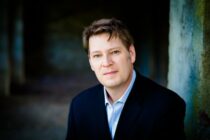
Sumner Thompson, baritone
Praised for his “elegant style” (The Boston Globe), Sumner Thompson is one of today’s most sought-after baritones. He has performed across North America and Europe as a soloist with renowned ensembles such as Concerto Palatino, Tafelmusik, Apollo’s Fire, Les Boréades de Montréal, Les Voix Baroques, the King’s Noyse, Mercury Baroque, and the symphony orchestras of Charlotte, Memphis, and Phoenix. Recent highlights include Monteverdi’s Vespers of 1610 and the new Vespers of 1640 with the Green Mountain Project; Buxtehude’s Membra Jesu Nostri with Les Voix Baroques and Houston’s Mercury Baroque; Mozart’s Requiem at St. Thomas Church in New York City; a tour of Japan with Joshua Rifkin and the Cambridge Concentus; and Britten’s War Requiem with the New England Philharmonic. He most recently appeared with EMV last year in From War to Peace: Heinrich Schurz and His Time (November) and Festive Cantatas: JS Bach Magnificat (December).
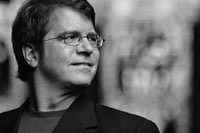
Hank Knox, guest music director
Hailed internationally for his “colorful, kinetic performances”, Hank Knox performs on harpsichord in concert halls, churches, museums, galleries and homes around the globe. A founding member of Montreal’s Arion Baroque Orchestra, with whom he has toured North and South America, Europe and Japan, Knox also regularly performs and tours with Tafelmusik Baroque Orchestra, Les Violons du Roy, and l'Orchestre Symphonique de Montréal, among other ensembles.
Dedicated to sharing the unique sounds of antique harpsichords, as well as fine copies of historical instruments, Knox has released a number of acclaimed recordings on rare instruments, including two collections of Frescobaldi keyboard works on a 1677 Italian harpsichord, and a collection of works by D’Anglebert performed on an upright harpsichord. A recording of Handel opera arias and overtures in transcriptions by William Babell was recorded on three exceptional instruments from the collection at Fenton House in London, and a recording of transcriptions of music by Francesco Geminiani was performed on a 1772 Kirkman harpsichord. A solo recital of works by J.S. Bach, recorded on a copy of an eighteenth-century Flemish instrument, was released to enthusiastic reviews in September, 2013. Hank Knox can also be heard on numerous recordings with Arion and Tafelmusik Baroque Orchestras for early-music.com, ATMA, and Analekta labels, as well as on national broadcasts for Radio-Canada and CBC.
Hank Knox teaches harpsichord and continuo in the Early Music program at McGill University in Montreal, where he also conducts the McGill Baroque Orchestra. He has directed a long series of Baroque operas for Opera McGill, including Purcell’s Dido and Aeneas, Lully’s Thésée, Monteverdi’s L'incoronazione di Poppea, and Handel’s Agrippina, Giulio Cesare, Alcina, Semele, Imeneo, Radamisto and, most recently, Rinaldo.

